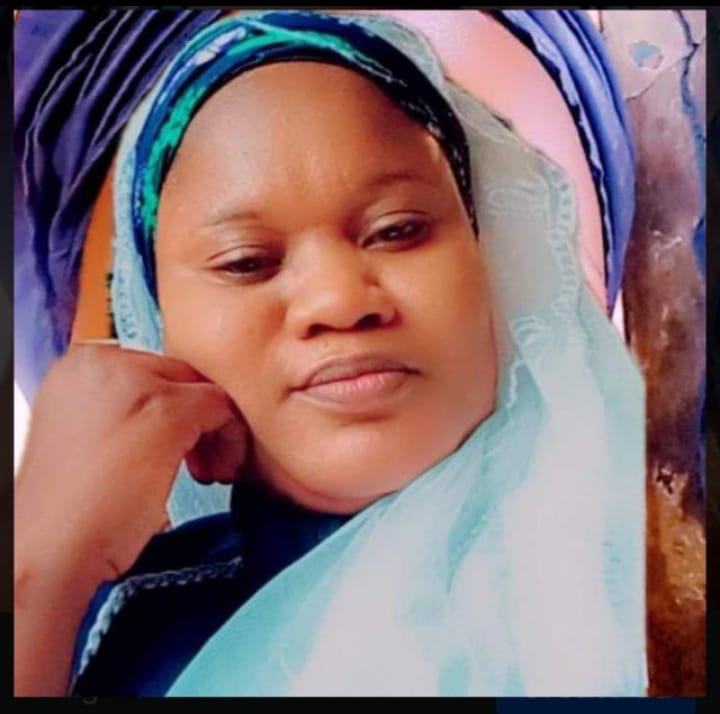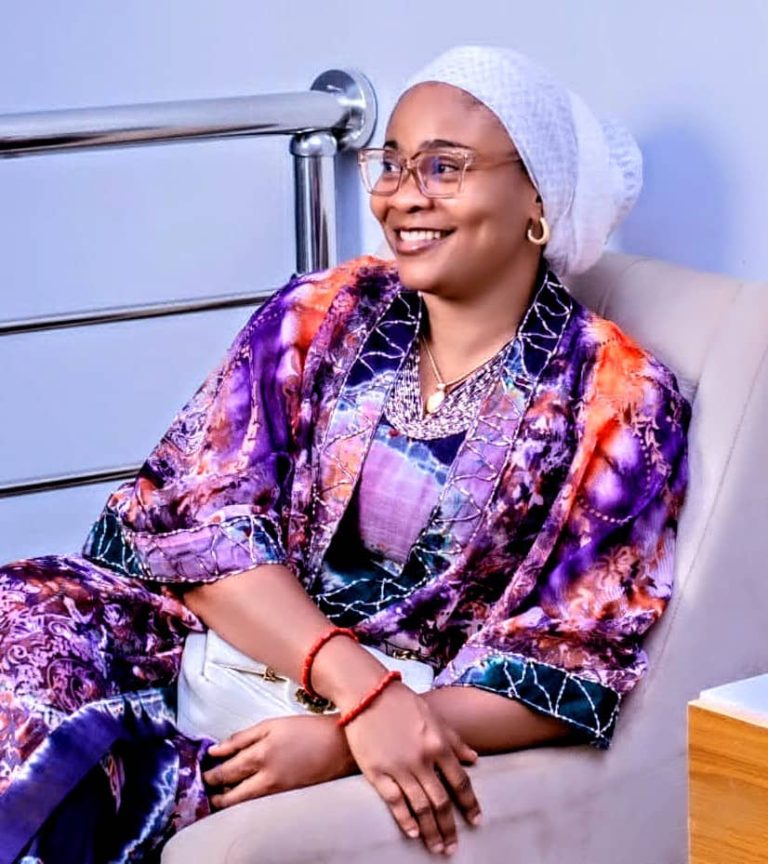The Crown Never Falls: Celebrating African Women Who Rise Against the Odds. By Falilat Oreoluwa Dikko

The Crown Never Falls: Celebrating African Women Who Rise Against the Odds. By Falilat Oreoluwa Dikko
“A woman is like a tea bag, you never know how strong she is until she’s in hot water.” That timeless saying could have been written with the African woman in mind. For every pot she stirs, every child she carries, every street she walks, every pitch she graces, and every sky she flies through she carries the weight of society with grace, grit, and glory.
From the sun-baked streets of Lagos to the rural edges of Uganda, from the vibrant heart of Johannesburg to the dusty markets of Kano, the African woman is not just living, she is thriving, soaring, and rewriting history.

When They Kick, They Shatter Glass Ceilings
Let’s begin where the drums beat loudest right now — football. The Nigerian Super Falcons have not only dominated the continent, they’ve become a global force. These women, led by the likes of Asisat Oshoala, Rasheedat Ajibade, and Chiamaka Nnadozie, are more than just athletes. They are national treasures. When Oshoala, often compared to Alex Morgan and Sam Kerr, scores a goal, she doesn’t just lift her shirt in celebration, she lifts the dreams of millions of girls in Makoko, Ibadan, and even far-off Maiduguri.
The Falcons, nine-time WAFCON champions, are known for their unity, resilience, and spiritual bond. They don’t just warm up with drills; they begin each day in worship, lifting voices in praise like angels in boots. Their recent victory over Morocco wasn’t just a win, it was a war of willpower, a symphony of grace under fire. They returned home to a royal welcome, and rightly so. They showed that the football pitch is not a man’s playground alone it is open for queens too.

Women Who Touch the Sky
Now shift your gaze to the skies, and you’ll find women like Captain Chinyere Kalu, Nigeria’s first female commercial pilot, who took to the clouds when people said a woman’s place was in the kitchen. Or Captain Irene Koki Mutungi from Kenya, the first female captain of the Boeing 787 Dreamliner in Africa. These women don’t just fly planes, they fly against the wind of cultural limitations.
Behind every take-off is a story of tenacity. They studied, trained, and broke through cockpit doors once guarded like fortresses. They remind us that when you educate a woman, you empower a nation.
What about the world of engineering, once seen as a boys’ club? Meet Engineer Olajumoke Yaya-Bankole, a shining example of brain and boldness. Not only is she a practicing engineer, she is also the first female president of Barry Wonder Lives On (BWLO) group, a feat that marries intellect with influence. Her leadership reflects the modern African woman: confident, capable, and uncompromising.
She is not alone. Across Nigeria and beyond, women like Engineer Uchenna Okeke, who leads bridge construction in Anambra, and Engineer Gertrude Tumba from Zambia, are building Africa, one concrete slab at a time. Like the Yoruba proverb says, *“Obinrin gbooro bi oko “a woman is as wide as a farm; she holds the world.”
On the roads of Lagos, Ibadan, Accra, and Nairobi, women are taking the wheels literally. From Sókè women behind Danfo buses to Mama Blessing who drives a Keke Marwa in Surulere to send her children to school, African women are not waiting for jobs, they’re creating them.
Meet Salamatu Musa, a former tailor turned commercial driver in Kaduna. She ferries school children by day and runs a food kiosk by night. “This steering is my destiny,” she says with a laugh. “If men can drive and survive, I too can drive and thrive.” Her hands are rough, her face is sunburnt, but her smile is gold.
These women are the gears that keep society running, they rise before the cock crows and return after the streetlights flicker on. They remind us that dignity lies not in job titles, but in honest hustle.
You’ve seen some women on Lagos roads, dodging traffic to sell sachet water and plantain chips. You’ve heard them in Abuja markets, negotiating with a baby tied to their back. These women may not wear suits or heels, but their struggle is heroic. They are walking banks of sacrifice, carrying dreams in baskets and futures in nylon bags.
In Enugu, there’s Ngozi, a widow who sells roasted corn by the roadside. In Gambia, Fatoumata, a teenage hawker, uses her profits to pay her school fees. In Cotonou, Mariam, a yam seller, is sponsoring her brother through university. These women are unsung heroines and the backbone of informal economies.
As the Hausa proverb goes, “Matar da ta dage, tana iya ciyo duniya”, a determined woman can shake the world.
Now, let’s look at the political space too. From Ngozi Okonjo-Iweala, the first African woman to lead the World Trade Organization, to Ellen Johnson Sirleaf, Africa’s first elected female president, African women are proving they don’t just belong in rooms of power, they can build those rooms from scratch.
In every sphere be it in government, sports, STEM, commerce, or culture African women are stretching boundaries like elastic. They are not waiting for a seat at the table, they are designing new tables.
So, here’s to the African woman, the one who wakes before dawn, who ties her wrapper tight and faces the world with a jaw clenched in resolve and a heart soaked in faith.
Here’s to the woman who balances books and babies, who can change diapers in the morning and change policies by evening.
Here’s to the woman who was told “you can’t” but replied “watch me.”
Here’s to YOU, whether you’re a market woman in Osogbo, a coder in Kigali, a student in Jos, a single mother in Soweto, or a nurse in Addis Ababa. You are seen. You are celebrated.
They said a woman’s place is in the home. We agree as long as it includes the State House, football stadiums, cockpit, construction sites, and marketplaces.
Because when a woman rises, she doesn’t rise alone, she lifts families, communities, and entire generations with her.
So, to every African woman… Ẹ ku iṣẹ, Ẹ ku igbiyanju.
The world is better because of you. And we are proud to walk in your shadow.
Falilat Oreoluwa Dikko, author and public affairs analyst writes from Lagos Nigeria 1st, August , 2025



